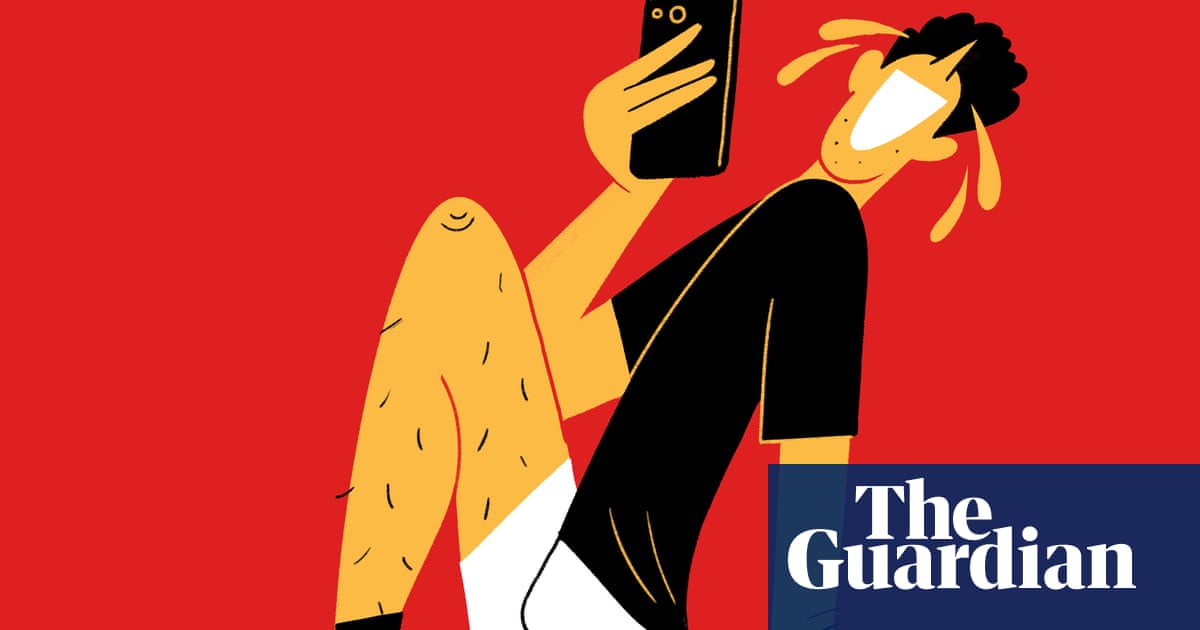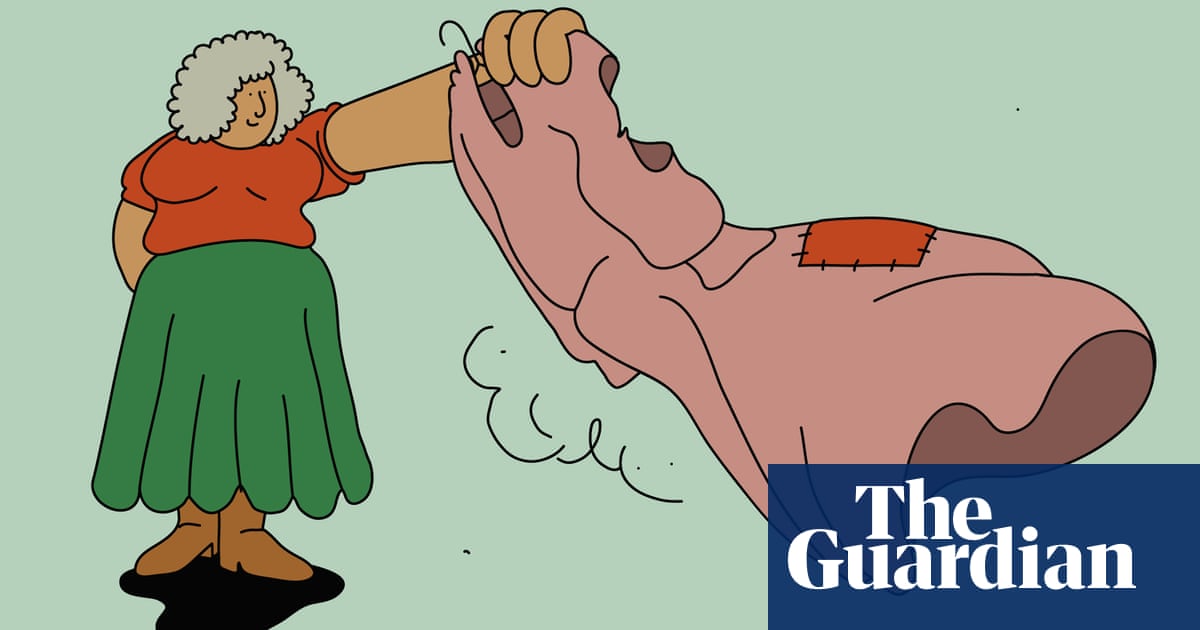
n October 2015, I decided to walk from my home near Croydon in south London to my brother’s grave in Oxford. John had been diagnosed with cancer in 2011, while studying for a PhD in history at Oxford University. When he died in 2012, there was no question of burying him elsewhere; though our family lived in London, Oxford was where John had felt most at home. I had not been back to the grave since his funeral; none of my family had.
We wanted to think of John as still with us in the world, not tethered to a single place, and we chose, on anniversaries, to do things he would have liked, such as going to see Paddington at the cinema, rather than laying flowers on the grass above his remains. We had driven close to it once, on the way home from somewhere. Seeing a sign for Wolvercote cemetery made me catch my breath, but none of us mentioned it, or the fact that my mother was weeping.
I wanted to walk there in part to inscribe the cemetery’s location on my body, so that it could never shock me like that again. I also wanted to expend effort for John. A death brings many tasks that are terrible, but also strangely wonderful, because they are ways in which your loved one still needs you. We selected the coffin so carefully, and I stamped John’s name into his hundreds of books when we cleared his bedroom. But after his gravestone had been chosen, it seemed as if there was nothing left to do. Visiting the grave and seeing the stone in situ, checking that it had been engraved and placed correctly, felt like a final task.
It would have taken just a few hours to reach the cemetery by public transport, but I needed longer to prepare myself for the sight: John’s death at 25, made official, written in stone. The journey would take six days on foot, following a snaking path along the River Thames. From door to grave was 150 miles.
I began on a damp Monday. I’d expected a pilgrim’s sense of calm, but my brain felt full of its usual clutter, until, after several hours, I came down towards the Thames at Richmond. The wide curve of the river appearing, framed by trees, sent joy through my limbs, like that first world-expanding glimpse of the ocean on holiday.
I rang the bell at the Richmond-Twickenham ferry, expecting a silent, ancient figure with a white beard to row me across, but the ferryman was a teenager, with a single, glinting earring. Because he asked, I told him my destination, and on the other side he refused to take my pound.
When I arrived at a friend’s house that night, 19 miles into my journey, my body felt ragged. I’d often walked the three hours of pavements from zone 1 to zone 4 in London, a habit acquired in the first flush of grief, when I felt restless and craved repetitive tasks, but a whole day of walking had shocked me. There was stiffness in my muscles that I knew would solidify as I slept, so that my first miles the next day would feel like thawing out. My friend fed me and washed my sore feet. Doubt crossed her face when I told her how much farther I had to go.
I crept out early the next day, the streets empty and dim. At the river, a man gestured to the rain and said, “Miserable weather” by way of a greeting. It dawned on me that he thought I was out for a brief stroll, that no one could tell what I was up to. Once, for a play I was working on, I’d picked up a thin, silver sword from a theatrical weapon hire and carried it back to my rehearsal on the tube in an inconspicuous case, and, as the week went on, my mission began to feel like this; a strange, secret object about my person.
I found myself wanting to tell a woman who was standing in front of a gleaming riverfront house hurling bread at mallards: “I’ll be walking all week! My destination is a grave!” But I soon realised that there was something strangers could offer me, precisely because they didn’t know. “Look at that,” a farmer said as we crossed in a field, and I glanced up and saw a long, low rainbow. I wanted to chase after him and thank him, because he had given it to me so lightly, not knowing I needed it.
I had begun to bow my head and plough forwards, as if only blinkered stubbornness would get me through, when, of course, what I needed was beauty.
Step by step, I moved closer to John. I can tell the journey in impressions now: swans travelling in rings of ripples; evening rowers at Maidenhead; a cage of white doves in a riverside garden; painting liquid plasters over the knuckles of my toes; the hostel in Streatley where I slept alone surrounded by empty bunks. But at the time, each day was distinct and often painful. The distances stretched me beyond my fitness, especially the ill-advised day I decided to walk 25 miles.
Loss is also like this; you move through it doggedly, incrementally, and time blurs some of the sharpness. And, as in grief, the path offered me flashes of beauty to keep me going: the watchful face of a hare before it vanished into a hedge; tall, spiked teasels; and the river in its many states of light. Rain and barbed wire and yellowing thistles gave way to blue sky over a meadow of poppies and cosmos. How varied this world was, that no longer held my brother. I felt entrusted with it, as if John had passed it to me as he left.
The last town I stayed in was Abingdon. As I devoured chips in a pub, the barmaid asked: “Are you staying at Morgan’s house?” My host had told her that his guest was a young woman on a journey of many miles. Finally, my exhaustion and hunger and muddy shoes had exposed my secret to strangers.
The next day, I re-dressed my blistered feet in plasters and stepped out into the dawn. As I approached Oxford, the water filled with early-morning rowers. A strange worry came: what if, after all this, the grave wasn’t there? The anxiety caused my stomach to cramp, the pain so intense that I had to sit down in the grass beside the path. But I carried on, eventually leaving the river behind. Oxford opened around me like a pop-up book version of itself, in all its beauty and pomposity. I passed through its centre and through residential streets until I reached the cemetery’s iron gates.
The stone was there, of course. It bore the inscription we had asked for: John Beecher. Beloved. 14.12.86 – 12.12.12. I took off my backpack and sat down on the grass before that striking date of death, no date so uniform possible for another century. My worry that the grave wouldn’t be there had actually been an absurd wish. Part of me, I realised, had imagined not this stone, but my brother meeting me here, with his slightly sardonic smile. I lay down on the ground and wept. Eventually, a man approached me. The man’s name was Gerry, and he was there to see his wife, Beryl. You love him, he said simply, when I told him about John. It takes courage to approach a sobbing stranger.
I may admire Gerry, whom I never saw again, more than any other person I have met. He stayed with me a long time, then I stayed a little longer alone before taking the train back to London, all my steps undone in a couple of hours.
I realise now that preparation was never my aim; no journey would have made my brother’s grave easy to see. The walk was somewhere to put my love for him, a way to convert that love into effort. It was an act of deliberate slowness in a world that rushes us away from grief. And, above all, it was a lesson in the determination it takes to travel forwards from a loss, the incremental nature of that journey, step by step by step, into the rest of one’s life.












